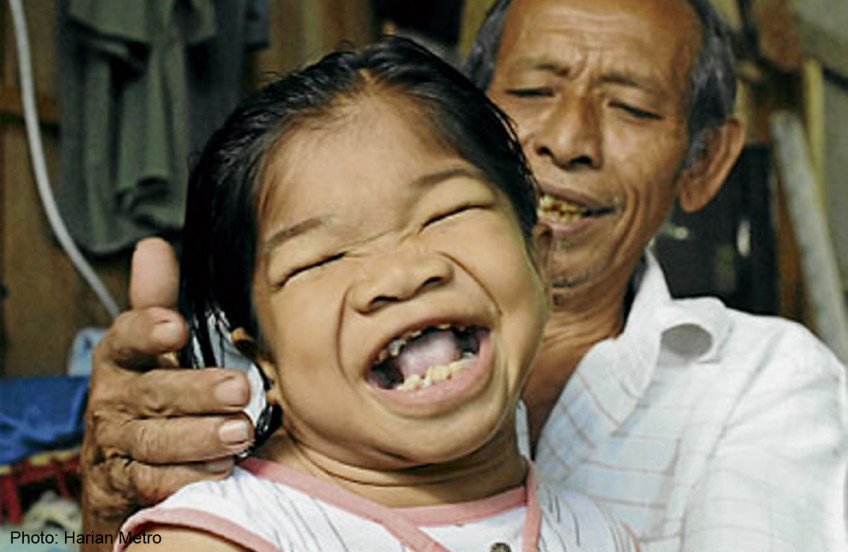Number of stunted children increases in Indonesia: Survey


INDONESIA - Despite government efforts to combat malnutrition, the recently released basic health research (Riskesdas) shows an increase in the percentage of children under five who suffered from stunted growth over the past few years.
The recently released 2013 Riskesdas revealed that 37.2 per cent of children in the country are stunted or shorter than average for their age, a slight increase from 36.8 per cent in 2007. The highest prevalence was documented in East Nusa Tenggara (NTT), where more than 50 per cent of children are stunted, followed by Pekanbaru with 30 per cent.
Stunting is the result of maternal malnutrition, commonly found in the country's poorest areas. Researchers have found that stunted children generally have lower IQs compared to well-nourished children.
The Health Ministry's nutrition director Doddy Izwardy said that the ministry was still evaluating the data.
"We used different methodology when designing this year's Riskesdas. Along with the ministry's research and development centre, we are still examining the reason behind the increasing figure," Doddy said Thursday.
A World Bank report released in July that was based on the 2007 Riskesdas showed that Indonesia had a greater number stunted children per capita than Vietnam and the Philippines.
Surprisingly, The World Bank also noted that Indonesia had the highest number of overweight children, with 12.2 per cent facing overnutrition and increased likelihood of cardiovascular diseases later in life.
Doddy said that to combat malnutrition among children and address stunting the ministry, in cooperation with the US government under the Millenium Challenge Corporation (MCC), had developed a food supplement, Taburia, a multiple micronutrient powder (MNP) for children aged 6 months to 5 years.
"We began the study in 2006 and now Taburia is ready to be mass-produced. We have completed the trial and this product is 100 per cent safe," Doddy said. "In March next year, we will begin the tender process and any company is welcome to participate in the bidding."
According to Doddy, Taburia will be ready for distribution to community health centers (Puskesmas) and integrated health post (Posyandu) by next year.
He said that all children suffering from malnutrition would be given the supplement for free.
"The supplement will increase appetite and we will encourage children who suffer from malnutrition to consume the supplement by sprinkling it on top of their meals for four months," he said.
The ministry's nutrition management directorate general secretary Kuwat Sri Hudoyo said that in 2012, only 75.1 per cent of children under the age of 5 regularly visited health centers.
"Around 25 per cent of children still have no access to health care. This would be one of our focuses in combating malnutrition, expanding access," Kuwat said.
"We will also improve our Scaling Up Nutrition project, which currently focus only on the first 1,000 days of life, by providing better nutrition for teenagers, in a hope to further increase youth awareness on healthy living," he said.